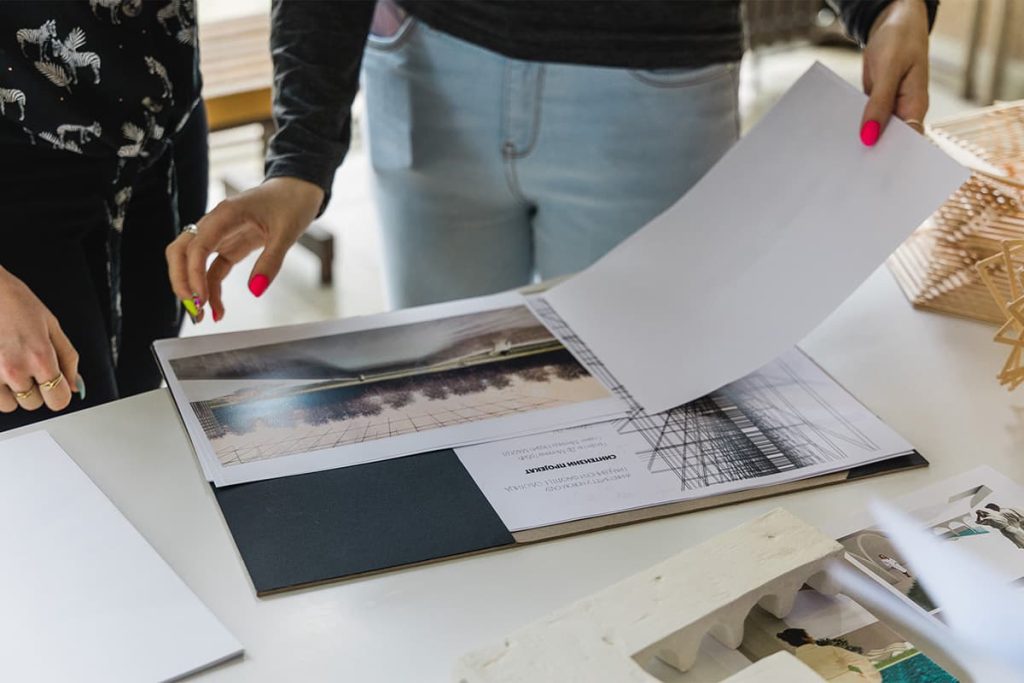Undergraduate Studies
What is the right choice for me?
With 2 study programmes, 5 modules and 143 subjects, you will have the opportunity to discover how civil engineering, geodesy, and other engineering sciences complement each other. There are so many options that it is difficult to narrow them down to just one.
At SFCE, you learn how to build a building, design a highway or a bridge to serve people, not only for years but for centuries to come. You are taught to solve complex projects as the most interesting game. You leave behind a professional legacy that will benefit generations long after you.

And most importantly, you will never be bored, because the entire learning process is an adventure that brings you answers and raises new questions. The knowledge is transferred to you by the academic staff involved in the development and construction of the country and the region. Their expertise and professionalism guarantee that you will acquire all the necessary knowledge and develop important skills.
You are required to be dedicated and to work hard. It pays off in the end. Our civil engineering and geodesy students have a reputation as excellent experts, which puts them in the focus of successful employers. If you see yourself as the most sought-after professional, choose one of the study programmes and start building your life!
Civil engineering
The undergraduate academic studies for obtaining the title of Bachelor of Civil Engineering last 4 years and have 240 ECTS points. The first 3 semesters of undergraduate studies at the civil engineering department are common to all majors. After completing the 3rd semester, students choose one of 4 study modules, where they have the opportunity to acquire broader knowledge and competence in areas of their specialisation:
● Structural engineering
● Hydrotechnics and environmental water engineering
● Traffic road engineering
● Architectural engineering
The Structural Engineering Module allows students to acquire essential knowledge and competence in the areas of design and development of industrial structures, concrete and metal structures and the basics of architectural design.
The Hydrotechnics and Environmental Water Engineering Module provides students with knowledge and competence in the fields of hydrotechnology, design and development of simple structures and engineering structures such as excavations, construction and transport infrastructure embankments, underground structures, as well as hydrotechnical structures.
The Traffic Road Engineering Module is aimed at developing students’ knowledge and competence in the field of construction, development, and maintenance of roads, airports, bridges, railways, and urban infrastructure facilities.
The Architectural Engineering Module combines the engineering knowledge and artistic talent of students. It improves their knowledge when planning, designing, and shaping structures of diverse purposes, as well as their interior and surroundings.
Geodesy
The Undergraduate Academic Program in Geodesy lasts four years and carries 240 ECTS credits. This program provides students with knowledge in the design and execution of geodetic works, such as: the development of geodetic networks, the design and management of geographic information systems (GIS), surveying, cadastre and spatial management tasks, and engineering geodesy. Upon completion of the undergraduate academic studies, graduates become eligible to obtain a professional license for independent practice in the field.
The primary objective of this study program is to educate engineers with a solid general academic background (including project design, foreign languages, and connections between geodesy and related engineering disciplines), a strong foundation in theoretical and methodological areas (such as mathematics, physics, geoinformatics, and theoretical geodesy), and reliable knowledge in scientific, technical, and applied aspects of geodesy.
